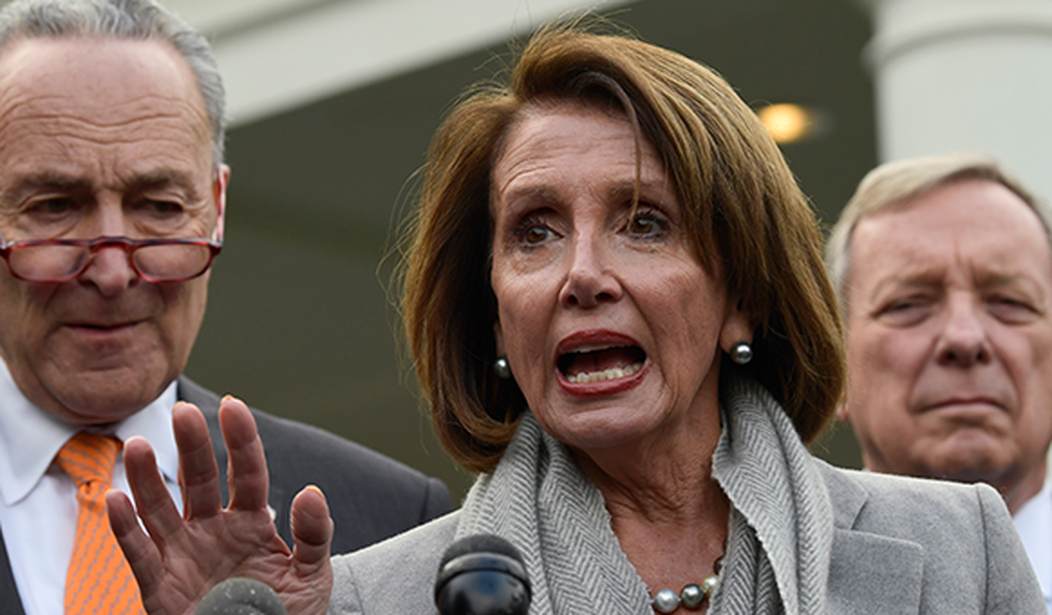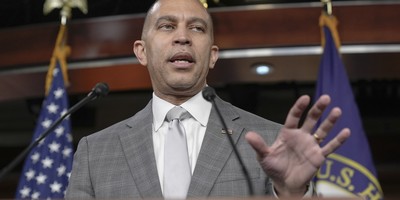It has "invariably been the fate of conservatism to be dragged along a path not of its own choosing," the philosopher and economist Friedrich Hayek famously wrote. Hayek's larger point was that while conservatism plays an important role in pumping the brakes on radical ideas that go too far, too fast, it lacks a positive alternative agenda itself.
In fairness to American conservatism, Hayek was talking primarily about the European variant that defended a status quo of aristocracy, theocracy and a fairly closed economy. But his basic point about the conservative temperament has always resonated with me, because it rings true. Conservatives often start from the position of saying "No" to any new proposal or reform and end up, because of the nature of politics, agreeing to some compromise between no and a total yes.
Sometimes this is fine. Sometimes it's worse than doing nothing. For example, imagine that liberals want to build a bridge that conservatives think is unnecessary pork. Compromising on half a bridge is dumber than no bridge or a whole bridge. Cheering the "bipartisan" or "centrist" nature of the half-bridge deal doesn't change the foolishness of it. Worse, liberals understand that they can pocket the concessions and benefits (union jobs, expanding the baseline budget, etc.) and come back the next year to demand more money to finish the project. As Milton Friedman said, "Nothing is so permanent as a temporary government program."
This dynamic doesn't just apply to public works but to a whole raft of market-distorting policies, from subsidies for higher education and health care to entitlements. The political priority for liberals is to establish the principle that there is a role for government in X and then keep insisting that the supposedly worthy initiative is underfunded. Look at where Democrats are today on health care. A couple years ago the Affordable Care Act was a bold progressive reform. Now it's too conservative for Democrats eager to do away with private health insurance and establish "Medicare for All."
Recommended
What makes this dialectic so frustrating for conservatives is that whenever government regulations lead to higher prices -- in college tuition, energy prices, rent, etc. -- the champions of further regulation blame the free market for failing to fix the problem.
This seems worth bearing in mind as President Trump and Democratic leaders hammer out an agreement to spend $2 trillion on infrastructure before agreeing on where the money will come from or how to spend it. The president would like to put it on the nation's credit card. The Democrats have no insurmountable objection to that, but they'd like to goad Trump into agreeing (before the 2020 election) to tax hikes to pay for it.
However it's spent, or paid for, you can be sure that before the last dollar goes out the door, Democrats will be insisting again that infrastructure is underfunded and that the private sector is inadequate to the task.
I don't really have a solution, in part because I'm not sure there is one. And as the saying goes, a problem without a solution isn't a problem, it's simply a fact. This is the nature of politics generally, and not just for conservatives. After all, there are many issues where liberals start from a position of "No" and end up being forced to accept a compromise they don't like.
But, as a conservative of the Hayekian variety, I see a particular threat in how some on the right are responding to this inconvenient truth: They want to get in on the action.
Historically, the primary conservative argument against top-down planning wasn't so much that politicians and bureaucrats aren't smart enough to run the economy from some Washington-based control room, but that it simply can't be done. Policymakers suffer from what Hayek called "the knowledge problem." The market is too complex, with too many variables on the ground, for anyone to manage things from above.
On some parts of the right, the argument is changing. The new proponents of "economic nationalism" no longer think elites can't run the economy -- just that liberal elites, or "globalists," can't run it. Part of this stems from the often-paranoid conviction that liberal elites have brilliantly rigged the system in their favor. So, the thinking goes, if they can pull that off, so can we.
It doesn't work that way. Such thinking is wrong regardless of the partisan agenda behind it, which is why Hayek dedicated his book "The Road to Serfdom" to "the Socialists of All Parties."

























Join the conversation as a VIP Member